SJI Reports 2020 Financial Results Announces Renewable Natural Gas Investment
Newsroom >
South Jersey Industries News
FOLSOM, NJ (February 24, 2021) - SJI (NYSE: SJI) today reported operating results for its 2020 full year and fourth quarter ended December 31, 2020. Highlights include:
- 2020 GAAP earnings of $1.62 per diluted share compared to $0.84 per diluted share in 2019
- 2020 Economic Earnings* of $1.68 per diluted share compared to $1.12 per diluted share in 2019
- 2020 GAAP/Economic Earnings include $0.13 per diluted share in nonrecurring items — adjustments for certain tax benefits ($.07), adjustments to SJG's rate design ($.03) and pipeline supplier refunds ($.03)
- Significant improvement in 2020 financial results, despite historic challenge of COVID pandemic, driven by increased profitability from Utility and Non-Utility operations
- 2020 highlights include positive resolution of SJG base rate case, targeted clean energy investment in support of regional goals, and regulatory proposals in support of safety and reliability, energy efficiency, decarbonization and job creation
- Dividend increased to indicated annual $1.21 per share, reflecting 22 consecutive years of rising dividends
- Consistent with SJI's decarbonization commitment, we have acquired a minority interest in REV LNG, LLC - a company specializing in the development, production and transportation of renewable natural gas (RNG), liquefied natural gas and compressed natural gas — along with the rights to develop anaerobic digesters at a portfolio of dairy farms to produce RNG (see pg. 6 for additional details)
- Financial growth outlook for 2021 and beyond to be outlined at Virtual Investor Day in May
"We are pleased to report solid growth in 2020 economic earnings despite one of the most challenging years in the history of our country" said Michael Renna, SJI President and Chief Executive Officer. "With the unyielding commitment of our dedicated and talented employees, we successfully executed our mission to provide safe, reliable and affordable natural gas to more than 700,000 customers across New Jersey while achieving significant progress to becoming a 21st century infrastructure company delivering the clean energy of the future. Our investment in REV, as well as pending regulatory proposals in support of accelerated infrastructure modernization and energy efficiency, are expected to positively impact our financial metrics and advance our decarbonization goals. We are currently incorporating these investments and initiatives into our plans and look forward to sharing our vision for the future with you at our upcoming Investor Day in May," added Renna.

*Non-GAAP, see "Explanation and Reconciliation of Non-GAAP Financial Measures."
Note: Earnings and average shares outstanding are in millions. Amounts and/or EPS may not add due to rounding
2020 Results
For the twelve-month period ended December 31, 2020, SJI reported consolidated GAAP earnings of $157.3 million compared to $77.2 million in the prior year period.
SJI uses the non-GAAP measure of economic earnings when discussing results. We believe this presentation provides clarity into the continuing earnings of our business. A full explanation and reconciliation of economic earnings is provided under “Explanation and Reconciliation of Non-GAAP Financial Measures” later in this report and in our 10-K for the year ending December 31, 2020.
For the twelve-month period ended December 31, 2020, economic earnings were $163.0 million compared to $103.0 million last year.
UTILITY
Utility entities include South Jersey Gas (SJG), Elizabethtown Gas (ETG) and Elkton Gas (ELK). 2020 GAAP earnings were $156.1 million compared with $122.2 million in 2019. 2020 economic earnings were $157.3 million compared with $122.2 million in 2019.
South Jersey Gas
Performance. 2020 GAAP earnings were $108.1 million compared with $87.4 million in 2019. 2020 economic earnings were $109.3 million compared with $87.4 million in 2019. Utility margin increased $30.2 million, reflecting rate relief effective October 1, 2020, customer growth and the roll-in of investments from infrastructure replacement programs. We define utility margin, a non-GAAP measure, as natural gas revenues plus depreciation and amortization expenses, less natural gas costs, regulatory rider expenses and related volumetric and revenuebased energy taxes. Total expenses increased $8.3 million, primarily reflecting higher operation, depreciation and interest expense.
Customer Growth. SJG added approximately 7,800 new customers over the last 12 months and now serves approximately 405,000 customers. SJG’s 1.9% customer growth rate compares favorably to our peers and remains driven by gas conversions (~70% of new customer additions) from alternate fuels such as oil and propane.
Infrastructure Modernization. Through infrastructure replacement programs, SJG enhances the safety and reliability of our system while earning our authorized utility return on approved investments in a timely manner. SJG's Accelerated Infrastructure Replacement Program (AIRP) authorizes investment of $302.5 million from 2016-2021 for important infrastructure replacement upgrades. Our most recent annual investment of approximately $60 million from July 2019 to June 2020 was rolled into rates on October 1, 2020. SJG's Storm Hardening and Reliability Program (SHARP) authorizes investment of $100 million from 2018-2021 for four projects to enhance the safety, redundancy and resiliency of the distribution system along our coastal communities. Our most recent annual investment of approximately $30 million from July 2019 to June 2020 was rolled into rates on October 1, 2020.
Regulatory Initiatives. SJG has filings pending before the New Jersey Board of Public Utilities (NJBPU) in support of enhanced energy efficiency, infrastructure modernization and redundancy, described in greater detail below.
- Energy Efficiency. In September 2020, SJG filed a request with the NJBPU seeking to expand the company’s energy efficiency programs for three years, beginning in July 2021, with proposed investments totaling approximately $167 million. Since 2009, SJG has invested more than $110 million in energy efficiency programs. SJG’s filing represents a commitment to the State’s climate priorities, advancing New Jersey’s clean energy goals in a manner that will benefit customers, the environment and the State’s green economy. The implementation of the proposed program is expected to result in more than $200 million in customer bill savings, over 480,000 tons in avoided CO2 emissions and the creation of nearly 3,000 jobs over three years. A resolution of the filing from the NJBPU is expected in Q2 2021. 2
- Infrastructure Modernization. For many years, SJG has made considerable investments to modernize its natural gas systems through its current infrastructure programs (AIRP/SHARP), which are expected to be completed in the first half of 2021. In November 2020, SJG filed a request with the NJBPU seeking approval of an Infrastructure Investment Program (IIP) that would accelerate planned capital expenditures to enhance the delivery of safe, reliable, affordable natural gas, create jobs, and support the State’s environmental goals. Under the proposed five-year program, beginning in June 2021, SJG will invest approximately $742.5 million to replace 825 miles of aging steel mains and install excess flow valves on new service lines. These enhancements ensure the continued safety and reliability of the SJG system. A resolution of the filing from the NJBPU is expected in Q2 2021.
- Redundancy. SJG has submitted an engineering and route proposal to the NJBPU for approval to construct needed system upgrades in support of a planned 2.0+ Bcf liquefied natural gas (LNG) facility. Discussions with the NJBPU surrounding this important project continue to progress. We also continue to explore system alternatives that will allow for a secondary supply of gas needed to create reliability and resiliency for approximately 140,000 customers in Atlantic and Cape May counties.
Elizabethtown Gas
Performance. 2020 GAAP/economic earnings were $47.7 million compared with $34.2 million in 2019. Utility margin, as previously defined, increased $36.5 million primarily due to rate relief effective November 15, 2019, customer growth and the roll-in of investments from infrastructure replacement programs. ETG's rate case settlement authorized a $34 million rate increase based on a 9.6% return on equity and 51.5% equity component. Total expenses increased $23.0 million, primarily reflecting higher operation, depreciation and interest expense.
Customer Growth. ETG added approximately 4,400 new customers over the last 12 months and now serves approximately 302,000 customers. ETG’s 1.5% customer growth rate has increased from its historic 0.9% rate, driven by increases in new construction and gas conversions from alternate fuels such as oil and propane.
Infrastructure Modernization. ETG's Infrastructure Investment Plan (IIP) authorizes investment of $300 million from 2019-2024 for important infrastructure upgrades including the replacement of up to 250 miles of cast iron and bare steel mains. Our investment of approximately $60 million from July 2019 to June 2020 was rolled into rates on October 1, 2020.
Regulatory Initiatives. ETG has filings pending before the NJBPU in support of enhanced energy efficiency and conservation, described in greater detail below.
- Energy Efficiency. In September 2020, ETG filed a request with the NJBPU seeking to expand the company’s energy efficiency programs for three years, beginning in July 2021, with proposed investments totaling approximately $100 million. ETG's filing represents the company’s commitment to the State’s climate priorities, advancing New Jersey’s clean energy goals in a manner that will benefit customers, the environment and the State’s green economy. The implementation of the proposed program is expected to result in more than $185 million in customer bill savings, over 575,000 tons in avoided CO2 emissions and the creation of more than 2,000 jobs over 3-years. A resolution of the filing from the NJBPU is expected in Q2 2021.
- Conservation Incentive Program. In tandem with its Energy Efficiency filing, ETG has proposed a Conservation Incentive Program (CIP) that eliminates the link between usage and margin, putting ETG in a stronger position to help customers manage their energy bills. Gas utilities in New Jersey, including SJG, have successfully executed CIP programs for many years. A resolution of the filing from the NJBPU is expected in Q2 2021.
Elkton Gas
Performance. 2020 GAAP/economic earnings were $0.3 million compared with $0.6 million in 2019. In December 2019, SJI announced the sale of ELK to Chesapeake Utilities for $15.6 million in cash, including working capital. The transaction was completed on July 31, 2020 following receipt of Maryland Public Service Commission approval.
NON-UTILITY
Non-Utility entities include Energy Group, Energy Services and Midstream. 2020 GAAP earnings were $45.9 million compared with $(3.2) million in 2019. 2020 economic earnings were $45.9 million compared with $13.8 million in 2019.
Energy Group
Performance. Energy Group primarily includes wholesale gas operations engaged in fuel supply management and commodity marketing. 2020 GAAP earnings were $24.6 million compared with $(0.7) million in 2019. 2020 economic earnings were $23.8 million compared with $9.5 million in 2019.
-
Fuel Supply Management 2020 GAAP/economic earnings were $14.2 million compared with $10.9 million in 2019, reflecting new contracts that became operational over the last 12 months and increased volumes. As of December 31, 2020, SJI had nine fuel supply management transactions under contract and operational.
- Wholesale Marketing/Other 2020 GAAP earnings were $10.4 million compared with $(11.6) million in 2019. 2020 economic earnings were $9.6 million compared with $(1.4) million in 2019. Improved results primarily reflect improved asset optimization opportunities and a reshaped portfolio, as well as $2.8 million in pipeline supplier refunds.
Energy Services
Performance. Energy Services primarily includes energy production operations and account services. 2020 GAAP earnings were $17.1 million compared with $(6.7) million in 2019. 2020 economic earnings were $18.0 million compared with $0.1 million in 2019.
- Energy Production 2020 GAAP earnings were $14.9 million compared with $(9.2) million in 2019. 2020 economic earnings were $15.7 million compared with $(2.4) million in 2019, primarily reflecting the recognition of investment tax credits (ITC's) related to Fuel Cell and Solar acquisitions that commenced operation in 2020.
- Account Services 2020 GAAP/economic earnings were $2.2 million compared with $2.5 million in 2019, reflecting joint venture meter reading and appliance service contract fees.
Midstream
Performance. Midstream includes our 20% equity investment in the PennEast Pipeline (PennEast), a planned 1-Bcf interstate pipeline running from the Marcellus region of Pennsylvania into New Jersey. 2020 GAAP/economic earnings were $4.2 million, which was consistent with 2019, reflecting Allowance for Funds Used During Construction (AFUDC) related to the project.
Update. The PennEast member companies remain committed to the project and the affordable, reliable service it will bring to the region. In February, the Supreme Court of the United States granted PennEast's petition for a writ of certiorari, with argument in the case set for April. There are several factors potentially impacting the anticipated in-service date such as approval from FERC on the phased approach, approval of the remaining permit applications from Pennsylvania regulators, and construction-related considerations. At this time, PennEast anticipates placing the Phase One facilities in service in 2022 and anticipate placing the Phase Two facilities in service in 2024, though there may be a shift to the anticipated timeline depending on a number of factors.
OTHER
Performance. Other entity includes interest on debt, including the debt associated with our acquisitions of ETG and ELK in 2018. 2020 GAAP earnings were $(44.7) million compared with $(41.8) million in 2019. 2020 economic earnings were $(40.3) million compared with $(33.0) million in 2019, reflecting an increase in outstanding debt partially offset by debt repayments and refinancing.
Fourth-Quarter 2020 Results

For the three-month period ended December 31, 2020, SJI reported consolidated GAAP earnings of $69.1 million compared to $39.5 million in the prior year period. For the three-month period ended December 31, 2020, economic earnings were $63.0 million compared to $43.4 million last year.
UTILITY
Fourth-quarter 2020 GAAP/economic earnings were $63.8 million compared with $45.8 million in 2019.
- SJG GAAP/economic earnings were $43.4 million compared with $28.3 million in 2019. Utility margin increased $20.7 million, reflecting rate relief, customer growth and the roll-in of investment from infrastructure modernization programs on October 1, partially offset by operation, depreciation and interest expenses.
- ETG GAAP/economic earnings were $20.4 million compared with $17.2 million in 2019. Utility margin increased $10.0 million, reflecting rate relief, customer growth and the roll-in of investment from infrastructure modernization programs partially offset by operation, depreciation and interest expenses.
- ELK GAAP/economic earnings were $0.0 million compared with $0.3 million in 2019, reflecting the sale of the assets on July 31, 2020.
NON-UTILITY
Fourth-quarter 2020 GAAP earnings were $18.7 million compared with $3.5 million in 2019. Fourth-quarter 2020 economic earnings were $12.9 million compared with $6.4 million in 2019, reflecting improved profitability from Energy Group and Energy Services.
Energy Group
Fourth-quarter 2020 GAAP earnings were $12.6 million compared with $9.9 million in 2019. Fourth-quarter 2020 economic earnings were $6.7 million compared with $5.0 million in 2019. Fuel Supply Management contributed fourth-quarter 2020 GAAP/economic earnings of $4.0 million compared with $3.2 million in 2019, reflecting new contracts that became operational over the last 12 months. Wholesale Marketing/Other contributed fourthquarter 2020 economic earnings of $2.7 million compared with $1.8 million in 2019, primarily reflecting improved asset optimization opportunities.
Energy Services
Fourth-quarter 2020 GAAP earnings were $5.1 million compared with $(7.4) million in 2019. Fourth-quarter 2020 economic earnings were $5.4 million compared with $0.4 million in 2019, primarily reflecting the recognition of ITC's related to Fuel Cell and Solar acquisitions that were announced and/or achieved operation during the period.
Midstream
Fourth-quarter 2020 GAAP/economic earnings were $0.9 million compared with $1.0 million in 2019, reflecting AFUDC for the PennEast Pipeline project.
OTHER
Fourth-quarter 2020 GAAP earnings were $(13.4) million compared with $(9.9) million in 2019. Fourth-quarter 2020 economic earnings were $(13.8) million compared with $(8.7) million in 2019.
Clean Energy & Decarbonization
SJI remains committed to investments that advance the clean energy and decarbonization goals of New Jersey and our region. SJI currently holds ownership interests across the clean energy spectrum.
- Clean Energy. SJI invested $84.0 million in traditional clean energy investments in 2020, recognizing $21.3 million in investment tax credits (ITCs).
- Fuel Cells. Through its newly formed Catamaran Renewables joint venture, SJI acquired two fuel cell projects in Staten Island, New York from NineDot Energy for total consideration of $80.2 million. The projects, reflecting 7.5 MW of installed capacity, qualify under New York’s Value of Distributed Energy Resources (VDER) program, with 75% of revenues fixed over 25 years. The projects are further supported by a 95% availability guaranty from the operator. The projects achieved commercial operation in December and are expected to deliver an unlevered internal rate of return (IRR) of 11%.
- Solar. SJI installed solar arrays at our corporate facilities in 2020, and also completed the installation of four small solar arrays in New Jersey for total investment of $3.8 million. The projects, reflecting 1.6 MW of installed capacity, qualify under the NJ Transition Renewable Energy Certificates (TREC) program.
- Decarbonization. SJI has announced important partnerships and investments in recent months to reduce the carbon content of natural gas.
- Renewable Natural Gas. Consistent with our decarbonization commitment, in December 2020, SJI entered into an agreement to acquire a minority interest in REV LNG, LLC (REV), along with the rights to develop anaerobic digesters at a portfolio of dairy farms to produce renewable natural gas.
- REV specializes in the development, production and transportation of renewable natural gas, liquefied natural gas and compressed natural gas in North America.
- Over the last few years, REV has become one of the country’s leading developers of renewable natural gas (RNG) projects through capturing, cleaning and converting bio-methane to RNG. Among its service offerings, REV acquires the rights to build anaerobic digesters on dairy farms to produce RNG for injection into natural gas pipelines. REV then sources, transports and supplies RNG to utilities, commercial and industrial customers through the ownership of mobile tankers, decompression and vaporization assets as well as other related equipment.
- SJI’s investment in REV includes an interest in a proven producing portfolio of RNG projects, a developing pipeline of RNG projects, as well as certain energy infrastructure assets associated with transporting and supplying RNG to market.
- RNG recovered from dairy farms has a negative carbon intensity rating, meaning it takes more carbon out of the environment than it produces, and is less carbon intensive than conventional natural gas. These investments, along with our planned investments in RNG that will directly serve our utilities, will accelerate SJI’s path towards decarbonization.
- Total consideration under the agreement is $39.8 million, inclusive of minority interest, rights to develop RNG from a portfolio of dairy farms, capital contributions and transaction costs.
- The transaction is expected to be accretive to SJI’s cash flow and economic earnings and support continued long-term improvement in credit metrics.
- Green Hydrogen. In December 2020, SJI announced a partnership with Atlantic Shores Offshore Wind (Atlantic Shores) to collaborate on a green hydrogen pilot program, which will research, monitor and analyze the deployment of green hydrogen technology and natural gas blending in New Jersey. Atlantic Shores is a partnership between Shell New Energies US LLC and EDF Renewables North America, representing years of technical, operational and commercial energy expertise.
- Queue. SJI continues to evaluate a sizable queue of utility and non-utility investment opportunities that are expected to benefit future financial results. These opportunities may include RNG, hydrogen, smart meters and other projects to advance the region’s energy goals and reduce the effects of greenhouse gasses.
Capital Expenditures and Cash Flow
For the twelve months ended December 31, 2020:
- Net cash provided by operating activities was $311.6 million compared to $121.1 million in the prior year period, primarily reflecting rate relief at SJG and ETG, positive customer growth, higher wholesale margins, pipeline supplier refunds and lower legal expenses.
- Net cash used in investing activities was $507.8 million compared to $477.6 million in the prior year period, reflecting $600.4 million in total capital expenditures and clean energy investments primarily offset by $119.9 million in proceeds from asset sales.
- Net cash provided by financing activities was $209.6 million compared to $353.3 million in the prior year period, primarily reflecting $920.2 million in debt repayments and $114.6 million in dividends offset by $1.05 billion in long-term debt issuances and $197.6 million in net common equity issuance.
Balance Sheet
SJI remains committed to a capital structure that supports our regulated-driven capital spending plan while maintaining a balanced equity-to-total capitalization, ample liquidity and a solid investment grade credit rating.
- Equity-to-total capitalization was 32.2% at December 31, 2020 compared with 29.6% at December 31, 2019, reflecting debt and equity financing and repayment of debt using proceeds from asset sales.
- Our growth plan embeds conversion of mandatory convertible equity units due April 2021 ($287.5 million). Including conversion, as well as equity credit from rating agencies for long-duration debt, our adjusted equityto-total capitalization ratio, a non-GAAP measure, was 39.7% at December 31, 2020 compared with 37.5% at December 31, 2019.
- In February, Moody's affirmed SJG's A3 rating, with a raised outlook to stable from negative, citing among many factors SJG's positive rate case resolution in 2020 and steady improvement in financial metrics.
- SJI completed multiple steps in 2020 to strengthen liquidity, eliminate near-term debt maturities and ensure the ongoing funding of our capital program. With approximately $450 million of available borrowing capacity as of December 31, 2020, we feel confident in our ability to manage through the impacts of COVID-19.
Guidance/Virtual Investor Day
SJI's recent investment in REV, as well as pending regulatory proposals in support of accelerated infrastructure modernization and energy efficiency, are expected to positively impact our financial metrics and advance our decarbonization goals. We are currently incorporating these investments and initiatives into our plans and look forward to sharing our vision for the future in conjunction with a planned Virtual Investor Day in May. Details regarding participation in the meeting are expected to be provided in April.
Conference Call and Webcast
SJI will host a conference call and webcast on Thursday, February 25 to discuss our 2020 financial results. To access the call, please dial the applicable number approximately 5-10 minutes prior to the start time. The call will also be webcast in a listen-only format for the media and general public. The webcast can be accessed at www.sjindustries.com under Events & Presentations.
Date/Time: Thursday, February 25, 11:00 a.m. ET
Dial-In: Toll Free: 877-376-9937; Toll: 629-228-0738
Passcode: 7357502
About SJI
SJI (NYSE: SJI), an energy services holding company based in Folsom, NJ, delivers energy services to its customers through three primary subsidiaries. SJI Utilities, SJI’s regulated natural gas utility business, delivers safe, reliable, affordable natural gas to approximately 700,000 South Jersey Gas and Elizabethtown Gas customers in New Jersey. SJI’s non-utility businesses within South Jersey Energy Solutions promote efficiency, clean technology and renewable energy by providing customized wholesale commodity marketing and fuel management services; and developing, owning and operating on-site energy production facilities. SJI Midstream houses the company’s interest in the PennEast Pipeline Project. Visit sjindustries.com for more information about SJI and its subsidiaries.
Forward-Looking Statements and Risk Factors
This news release, including information incorporated by reference, contains forward-looking statements within the meaning of the U.S. Private Securities Litigation Reform Act of 1995. All statements other than statements of historical fact, including statements regarding guidance, industry prospects or future results of operations or financial position, expected sources of incremental margin, strategy, financing needs, future capital expenditures and the outcome or effect of ongoing litigation, are forward-looking. This Quarterly Report uses words such as "anticipate," "believe," "expect," "estimate," "forecast," "goal," "intend," "objective," "plan," "project," "seek," "strategy," "target," "will" and similar expressions to identify forward-looking statements. These forward-looking statements are based on the beliefs and assumptions of management at the time that these statements were prepared and are inherently uncertain. Forward-looking statements are subject to risks and uncertainties that could cause actual results to differ materially from those expressed or implied in the forward-looking statements. These risks and uncertainties include, but are not limited to, general economic conditions on an international, national, state and local level; weather conditions in SJI’s marketing areas; changes in commodity costs; changes in the availability of natural gas; “non-routine” or “extraordinary” disruptions in SJI’s distribution system; regulatory, legislative and court decisions; competition; the availability and cost of capital; costs and effects of legal proceedings and environmental liabilities; the failure of customers, suppliers or business partners to fulfill their contractual obligations; changes in business strategies; and public health crises and epidemics or pandemics, such as a novel coronavirus (COVID-19). These risks and uncertainties, as well as other risks and uncertainties that could cause our actual results to differ materially from those expressed in the forward-looking statements, are described in greater detail under the heading “Item 1A. Risk Factors” in SJI’s and SJG's Annual Report on Form 10-K for the year ended December 31, 2020 and in any other SEC filings made by SJI or SJG during 2019 and 2020 and prior to the filing of this earnings release. Also refer to the additional risk factor described below: Our business could be materially and adversely affected by a public health crisis or the widespread outbreak of contagious disease, such as the recent outbreak of respiratory illness caused by a novel coronavirus (COVID-19), which was declared a pandemic by the World Health Organization in March 2020. The continued spread of COVID-19 across the world has led to disruption and volatility in the global capital markets, which increases the cost of capital and adversely impacts access to capital. Additionally, our reliance on third-party suppliers, contractors, service providers, and commodity markets exposes us to the possibility of delay or interruption of our operations. For the duration of the outbreak of COVID-19, legislative and government action limits our ability to collect on overdue accounts, and prohibits us from shutting off services, which may cause a decrease in our cash flows or net income. These suspensions of shut offs of service for non-payment by New Jersey utility customers will be in place through at least March 15, 2021 based on an executive order issued by the Governor of New Jersey. We have been executing our business continuity plans since the outbreak of COVID-19 and are closely monitoring potential impacts due to COVID-19 pandemic responses at the state and federal level. As expected, we have incurred increased operating costs for emergency supplies, cleaning services, enabling technology and other specific needs during this crisis which have traditionally been recognized as prudent expenditures by our regulators. The effects of the pandemic also may have a material adverse impact on our ability to collect accounts receivable as customers face higher liquidity and solvency risks, and also considering the inability to shut off services as noted above. Currently, the impact of the pandemic to the collectability of our accounts receivable continues to be monitored, but such receivables have traditionally been included in rate recovery. Our infrastructure investment programs continue to move forward, and construction activity that was delayed in accordance with directives from the Governor of New Jersey have since continued; however, to the extent the pandemic worsens or a similar directive is put in place in the future for a long period of time, our capital projects could be significantly impacted. It is impossible to predict the effect of the continued spread of the coronavirus in the communities we service. Should the coronavirus continue to spread or not be contained, our business, financial condition and results of operations could be materially impacted, including impairment of goodwill or access to capital markets, which in turn may have a negative effect on the market price of our common stock. No assurance can be given that any goal or plan set forth in any forward-looking statement can or will be achieved, and readers are cautioned not to place undue reliance on such statements, which speak only as of the date they are made. SJI and SJG undertake no obligation to revise or update any forward-looking statements, whether as result of new information, future events or otherwise, except as required by law.
Explanation of Non-GAAP Financial Measures
Management uses the non-GAAP financial measures of Economic Earnings and Economic Earnings Per Share when evaluating its results of operations. These non-GAAP financial measures should not be considered as an alternative to GAAP measures, such as net income, operating income, earnings per share from continuing operations or any other GAAP measure of financial performance.
We define Economic Earnings as: Income from Continuing Operations, (i) less the change in unrealized gains and plus the change in unrealized losses on non-utility derivative transactions; (ii) less income and plus losses attributable to noncontrolling interest; and (iii) less the impact of transactions, contractual arrangements or other events where management believes period to period comparisons of SJI's operations could be difficult or potentially confusing. With respect to part (iii) of the definition of Economic Earnings, items excluded from Economic Earnings for the years ended December 31, 2020, 2019 and 2018, include impairment charges; the impact of pricing disputes with third parties; costs to acquire ETG and ELK; costs incurred and gains recognized on the acquisitions of Annadale (fuel cell projects) and EnerConnex; costs to prepare to exit the transaction service agreement (TSA); costs incurred and gains/losses recognized on sales of solar, MTF/ACB, ELK and SJE's retail gas business; costs incurred to cease operations at three landfill gas-to-energy production facilities; customer credits related to the acquisition of ETG and ELK; ERIP costs; severance and other employee separation costs; and additional tax adjustments including a state deferred valuation allowance and a one-time tax expense resulting from SJG's Stipulation of Settlement with the BPU. See (A)-(H) in the table below.
Economic Earnings is a significant financial measure used by our management to indicate the amount and timing of income from continuing operations that we expect to earn after taking into account the impact of derivative instruments on the related transactions, as well as the impact of contractual arrangements and other events that management believes make period to period comparisons of SJI's operations difficult or potentially confusing. Management uses Economic Earnings to manage its business and to determine such items as incentive/ compensation arrangements and allocation of resources. Specifically regarding derivatives, we believe that this financial measure indicates to investors the profitability of the entire derivative-related transaction and not just the portion that is subject to mark-to-market valuation under GAAP. We believe that considering only the change in market value on the derivative side of the transaction can produce a false sense as to the ultimate profitability of the total transaction as no change in value is reflected for the non-derivative portion of the transaction.
Reconciliation of Non-GAAP Financial Measures
The following table presents a reconciliation of our income from continuing operations and earnings per share from continuing operations to Economic Earnings and Economic Earnings per share (in thousands, except per share data):
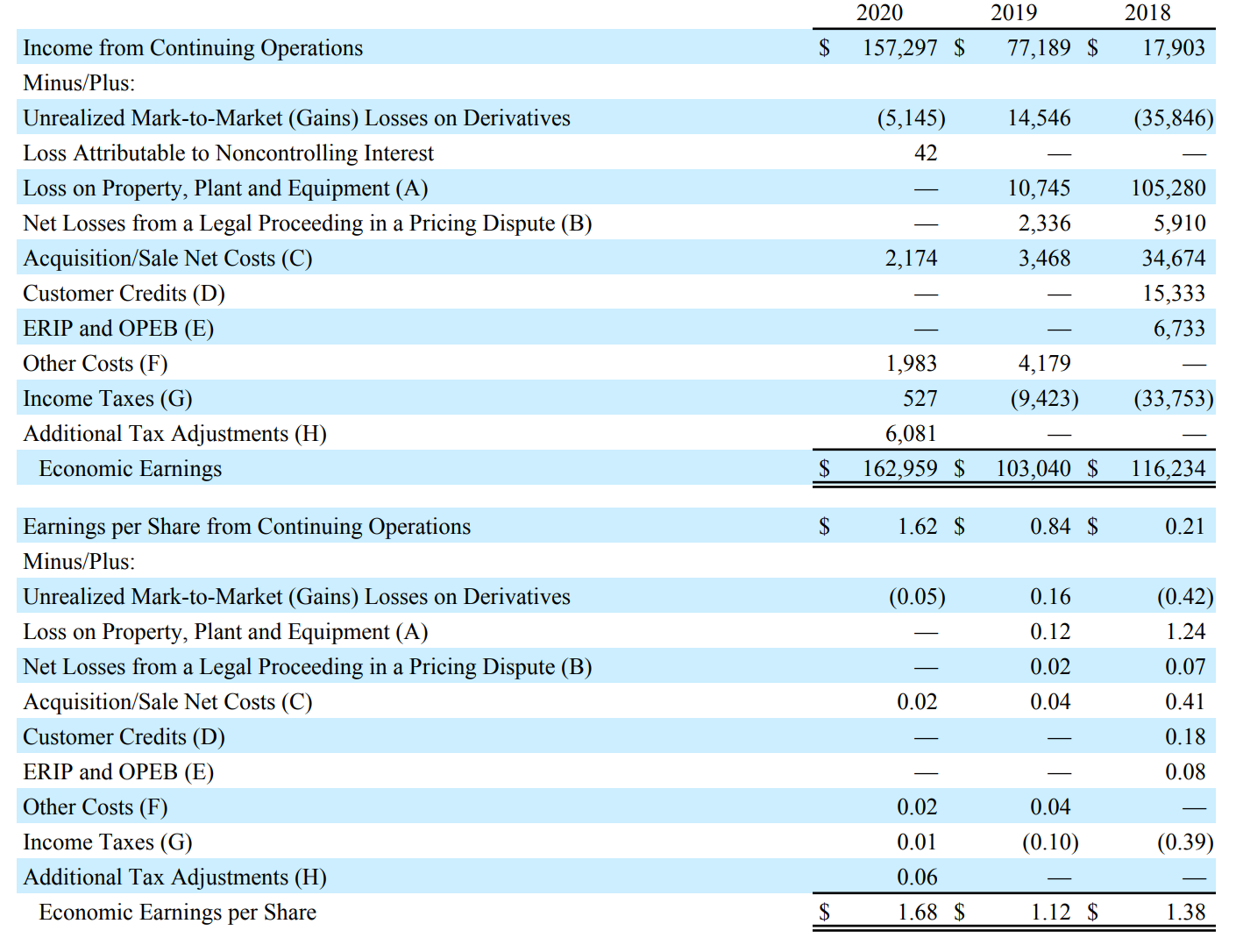
(A) Represents impairment charges taken as follows: in 2019 on solar generating facilities along with the agreement to sell MTF and ACB, which were both driven by the expected purchase prices being less than the carrying value of the assets; and in 2018 on solar generating facilities, which was also primarily driven by the purchase price in the agreement to sell solar assets being less than the carrying amount of the assets, along with LFGTE assets, which was primarily driven by the remaining carrying value of these assets no longer being recoverable.
(B) Represents net losses, including interest, legal fees and the realized difference in the market value of the commodity (including financial hedges) resulting from a ruling in a legal proceeding related to a pricing dispute between SJI and a gas supplier that began in October 2014.
(C) Represents the following:
- Costs incurred in 2020 to acquire EnerConnex, Annadale, and four solar LLCs
- Gain recorded in 2020 on the step-acquisition of EnerConnex 11
- Costs incurred and gains/losses recognized in 2020 on the sales of MTF/ACB and ELK
- Costs incurred and gains recognized in all three periods on the sale of certain solar assets included in Assets Held for Sale in previous periods. The gains pertain to those projects that were not impaired in previous periods.
- Costs incurred in 2018 on the agreement to acquire the assets of ETG and ELK, and costs incurred in 2019/2020 to prepare to exit the transaction services agreement
- Costs incurred in 2018 on the sale of the retail gas business of SJE
(D) Represents credits to ETG and ELK customers that were required as part of the ETG/ELK Acquisition.
(E) Represents costs incurred on the Company's ERIP as well as the benefit of amending the Company's OPEB.
(F) Represents severance and other employee separation costs, along with costs incurred to cease operations at three landfill gas-to-energy production facilities.
(G) The income taxes on (A) through (F) above are determined using a combined average statutory tax rate applicable to each period presented.
(H) Represents primarily additional tax adjustments including a state deferred tax valuation allowance at SJI, and a one-time tax expense resulting from SJG's Stipulation of Settlement with the BPU.
Summary of Utility Margin
The following table summarizes Utility Margin for the years ended December 31, 2020, 2019 and 2018 for SJG (in thousands):
SJG:
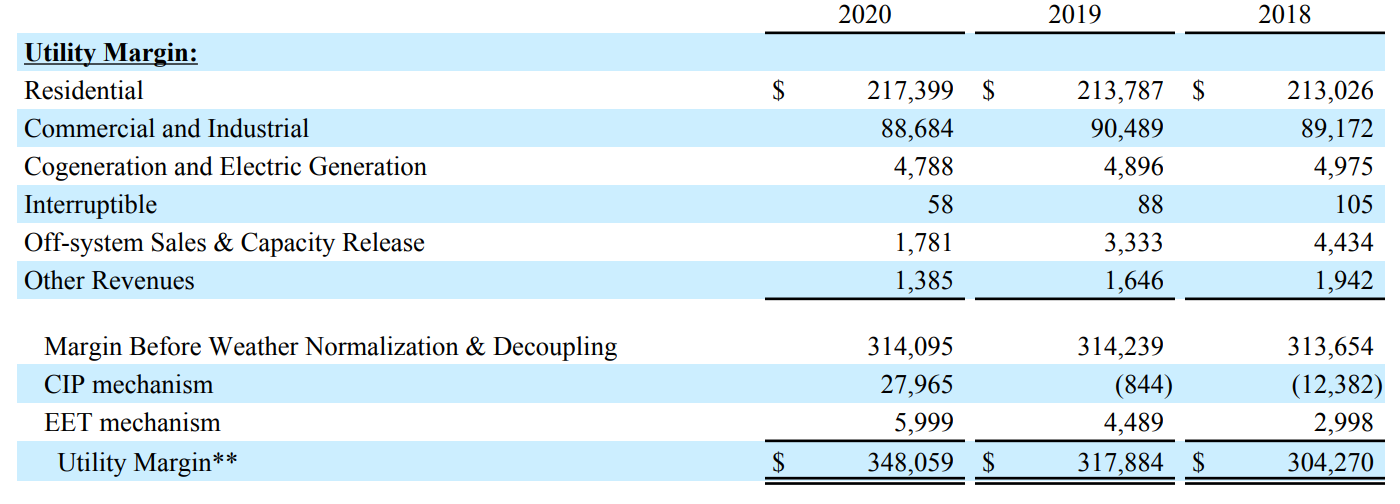
The following table summarizes Utility Margin at ETG for the twelve months ended December 31, 2020 and 2019, and for the post-Acquisition period during 2018, which was July 1, 2018 through December 31, 2018 (in thousands):
ETG:

*Represents expenses for which there is a corresponding credit in operating revenues. Therefore, such recoveries have no impact on SJG's or ETG's financial results.
**Utility Margin is a non-GAAP financial measure and is further defined above. The definition of Utility Margin is the same for SJG and ETG gas utility operations. 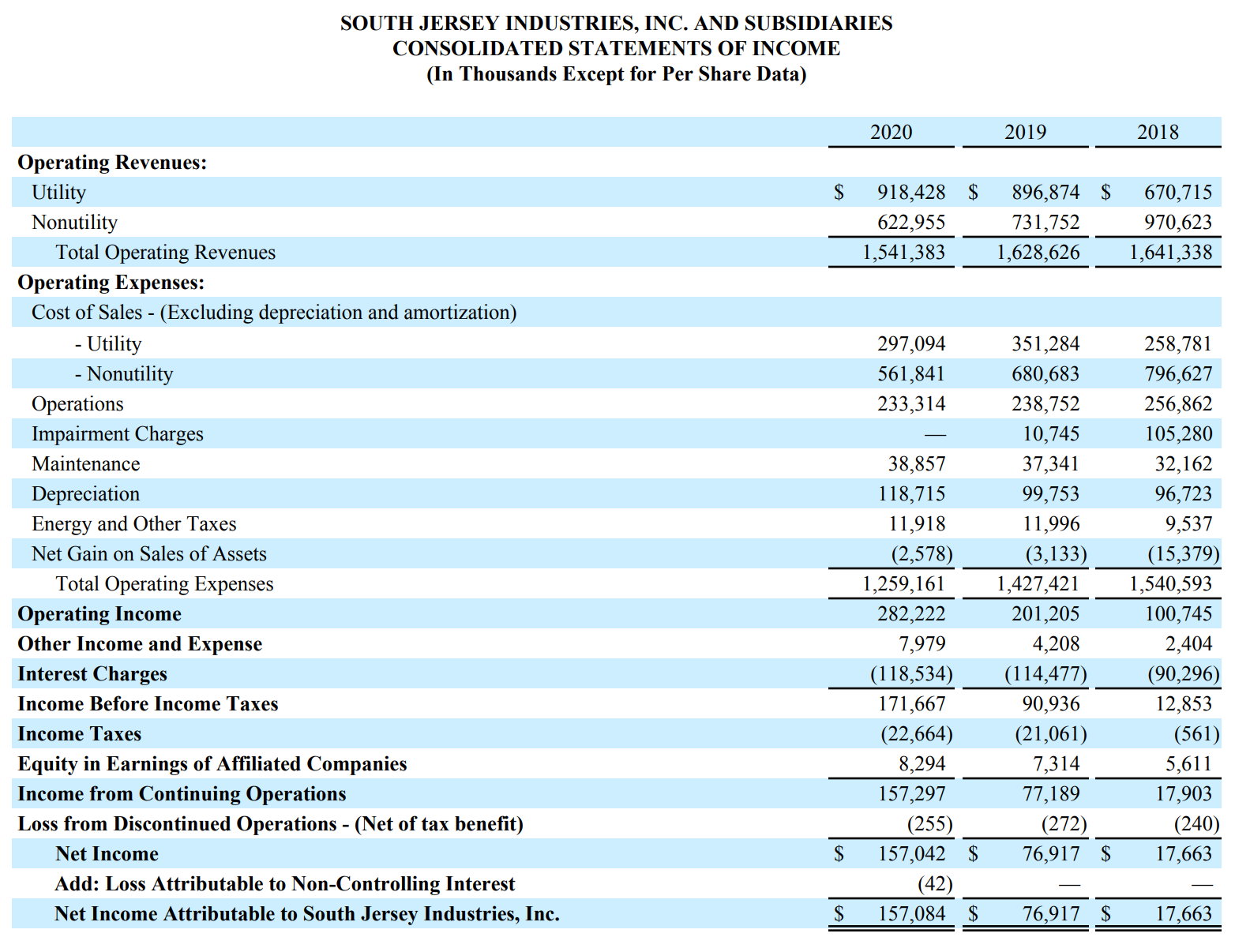
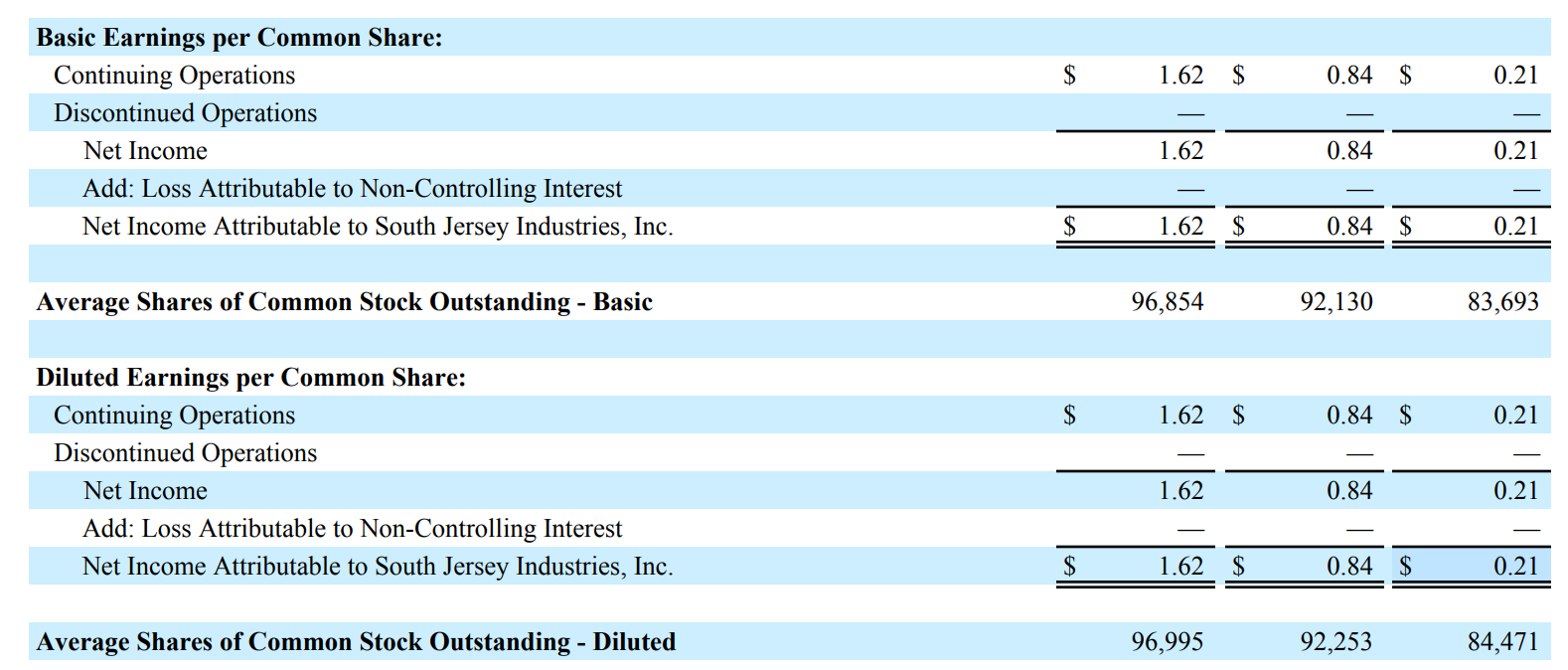
SOUTH JERSEY INDUSTRIES, INC. AND SUBSIDIARIES
CONSOLIDATED STATEMENTS OF CASH FLOWS
(In Thousands)
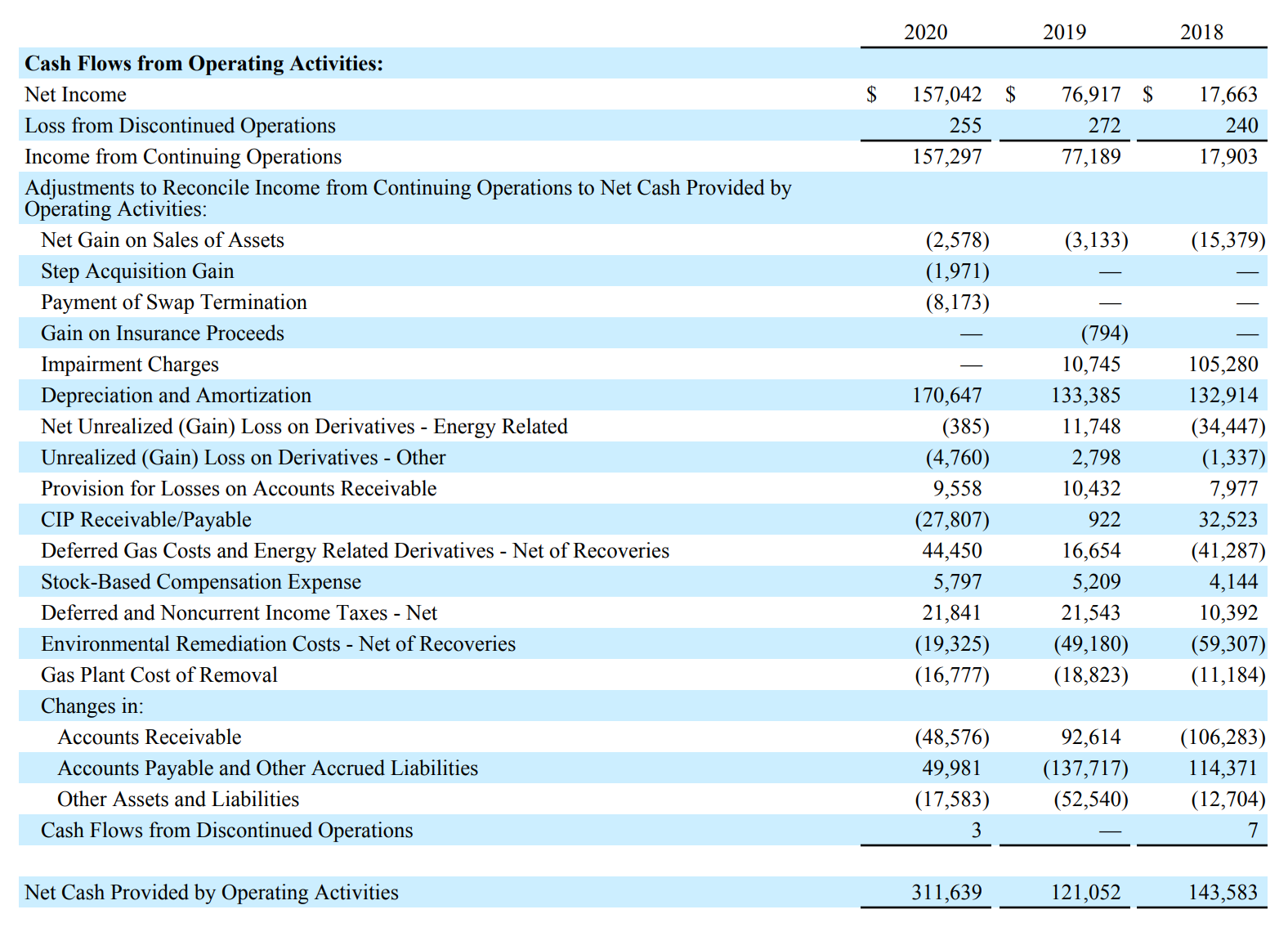
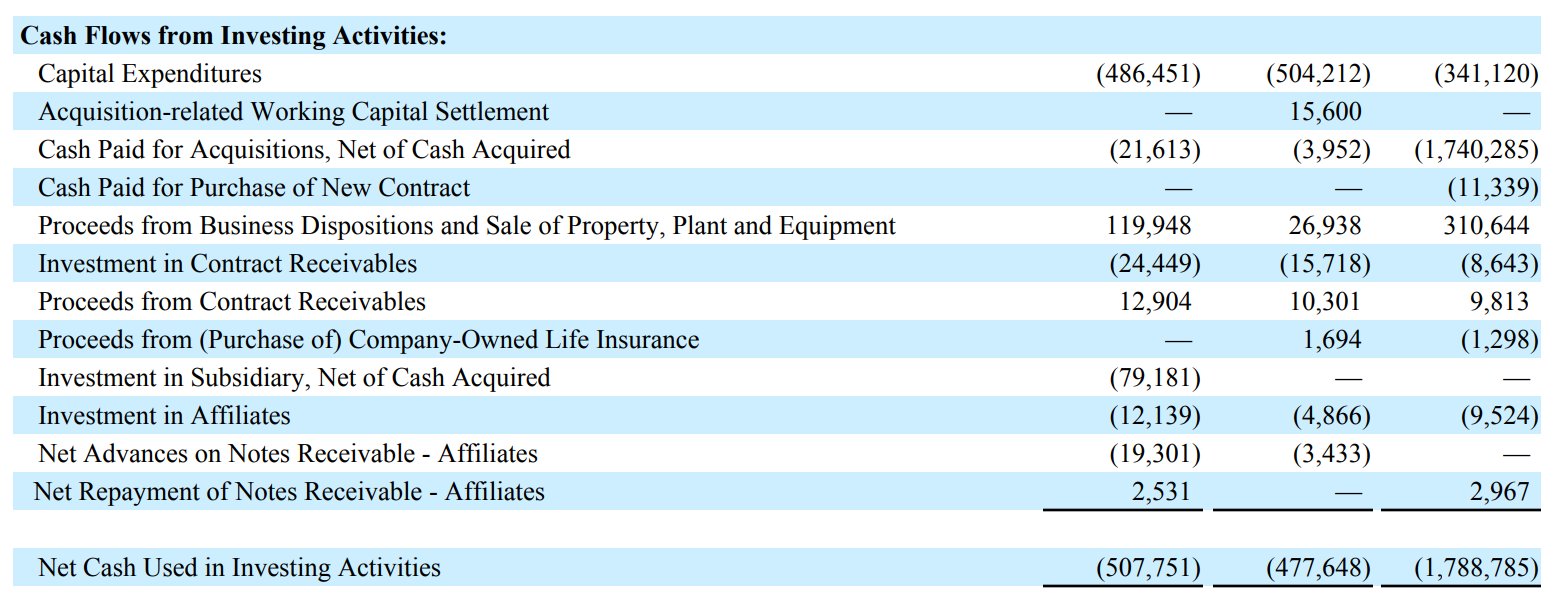
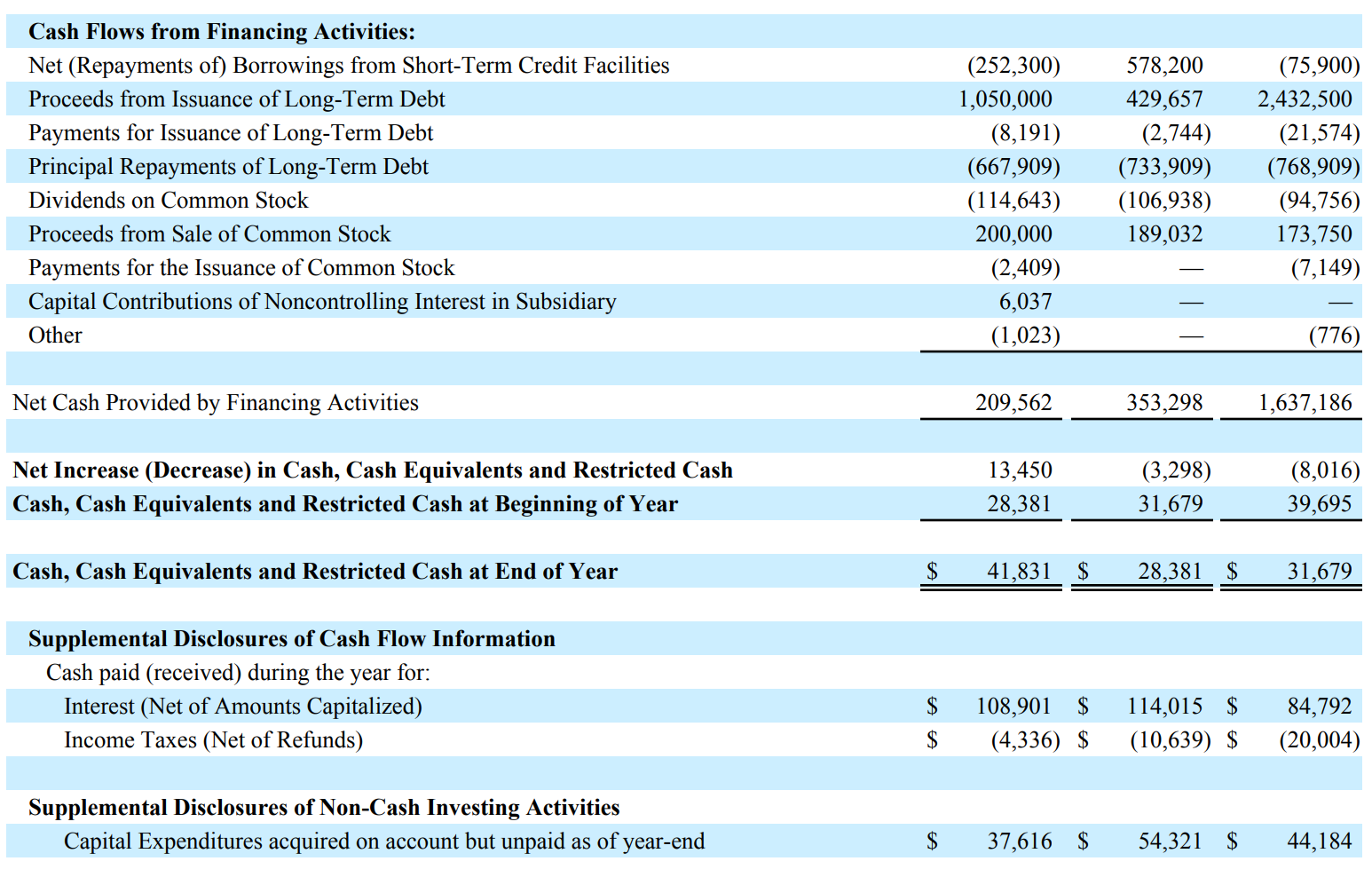
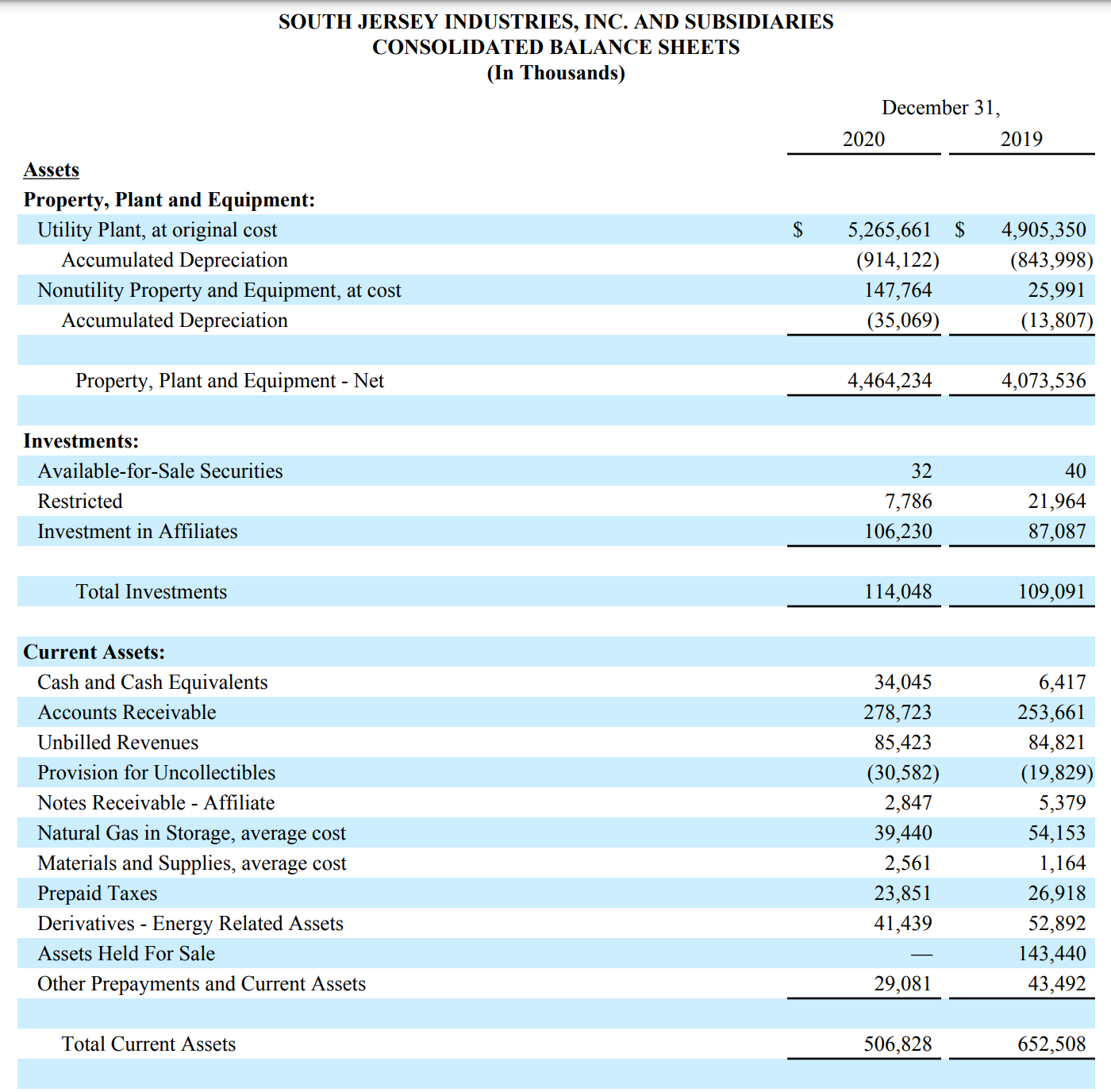
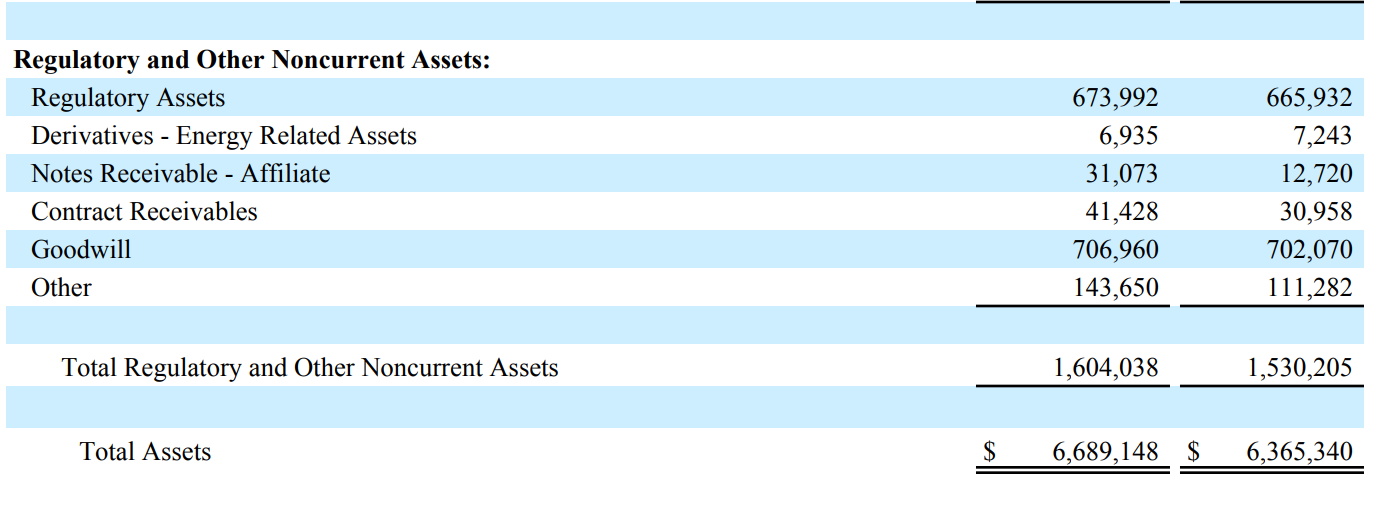
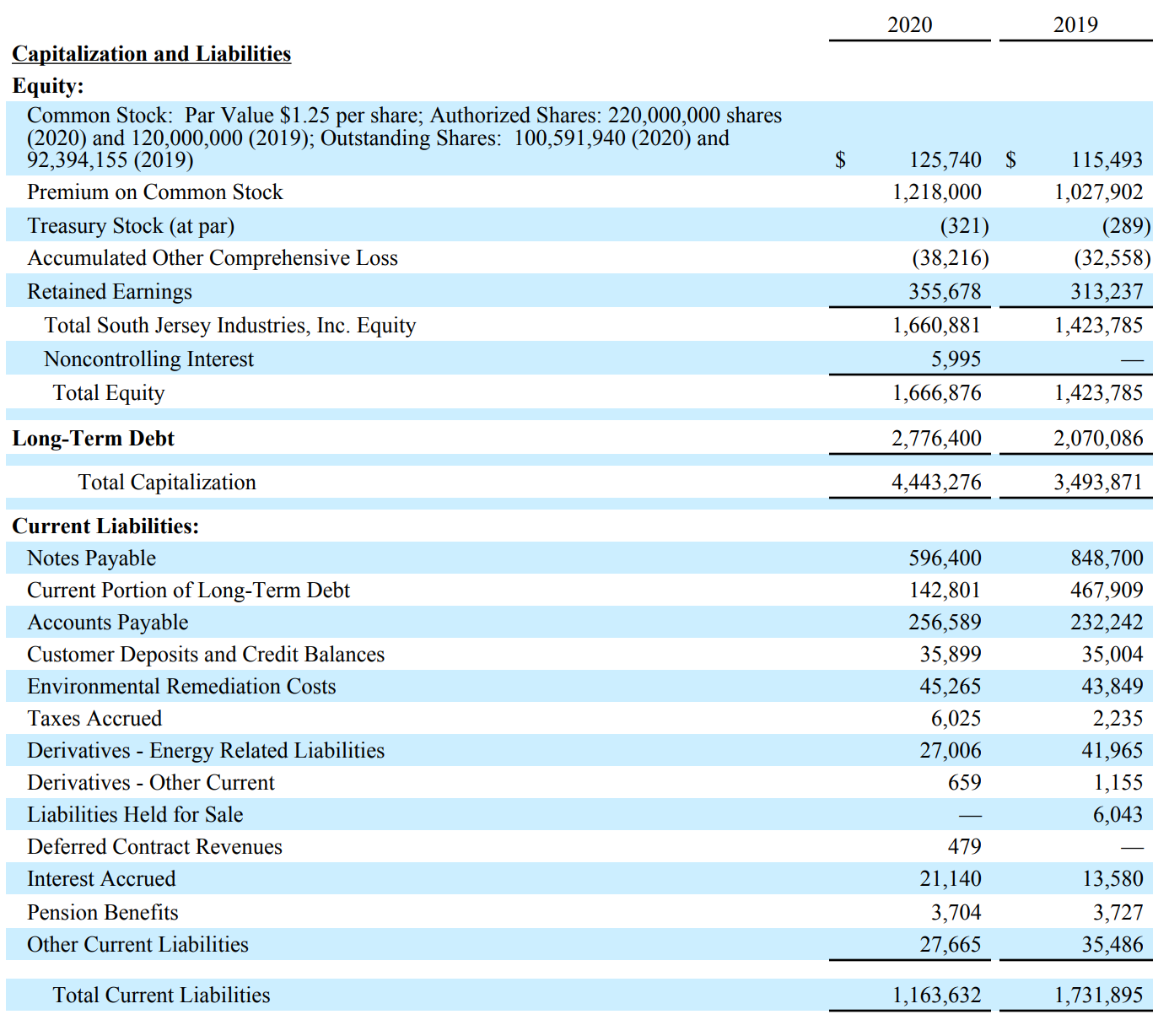
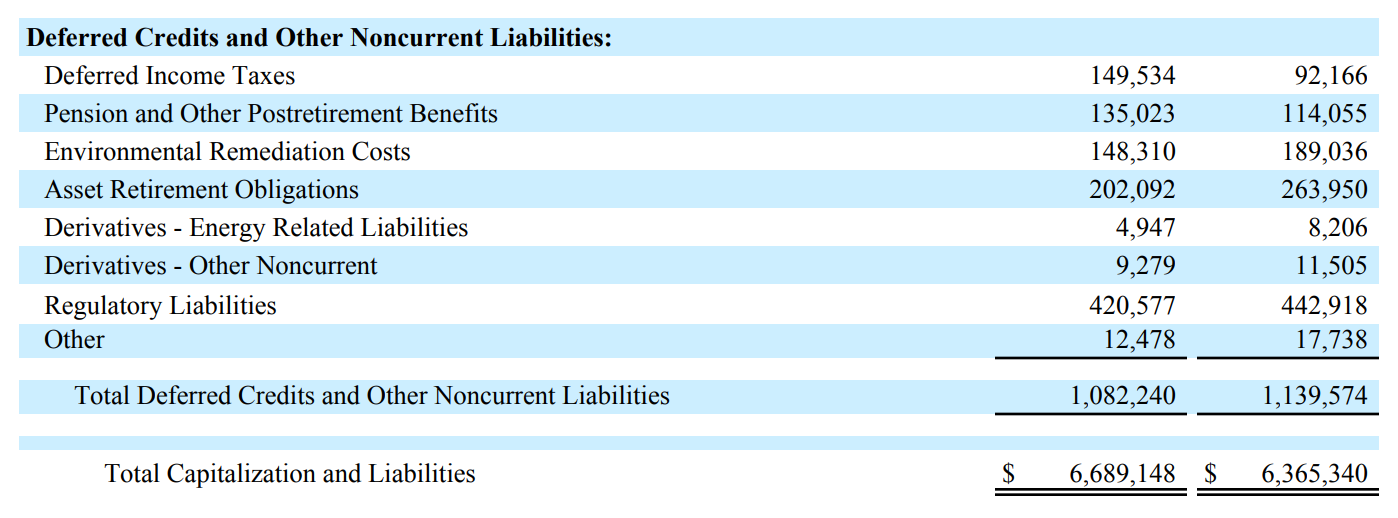
 Q4 2020 Earnings Press Release
Q4 2020 Earnings Press Release